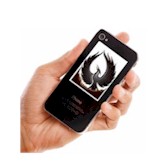|
|


IVR Solutions
This section of our technical library presents information and documentation relating to IVR Development and custom IVR software and products.
Business phone systems and toll free answering systems (generally 800 numbers and their equivalent) are very popular for service and sales organizations, allowing customers and prospects to call your organization anywhere in the country.
The PACER and WIZARD IVR System is just one of many DSC call center phone system features..
What Is IVR?. An Interactive Voice Response (IVR) processes inbound phone calls, plays recorded messages including information extracted from databases and the internet, and potentially routes calls to either inhouse service agents or transfers the caller to an outside extension.
Contact DSC today. to learn more about our IVR services and IVR application development software.
Why Customers Hate Your IVR System
Page 1
By Aspect Communications
Interactive voice response (IVR) systems have a reputation—in many cases well
deserved—for predisposing customers to take their business elsewhere. Most
companies deploy voice self-service applications to cut staffing costs, and many believe
that reduced customer satisfaction is a necessary tradeoff for the savings they get.
But there are other compelling reasons for using IVR systems. Properly designed,
they can actually increase customer satisfaction, and they also have the potential to
increase revenue by extending your business hours and your market reach.
To get the most out of your IVR system and to avoid the pitfalls that lead to
disgruntled customers, you have to:
- Know what functions can be successfully automated and how to design
effective applications
- Take advantage of advanced IVR technologies
- Employ proven best practices, no matter what technology you use
This white paper deals with the issue of customer aversion to IVR systems by
exploring potential problems, describing new technologies, and offering practical
advice about how to create voice self-service applications that promote customer
loyalty at the same time they help your business contain costs.
Welcome to the Contingencies.com automated insurance claim filling system.
If your claim falls into category 1, 3, or 7, press 1. If your claim falls into
category 4 or 5, press 2. If your claim falls into any category other than the
ones already mentioned, press 3. For a description of claims categories, refer to
page 15, subparagraph 7a of your Contingencies.com insurance policy, or press 4.
If you would like to speak to a claims representative, press 5.
What number would you press? So would your customers, and I wouldn’t want to
be the claims representative who gets the call.
If your IVR system sounds anything like this, then you’ve defeated one of the purposes
of having it, since your agents are going to have to handle the calls anyway. Worse
still, you’ve done immeasurable harm to customer loyalty. When the time comes to
renew the insurance policy, the frustration of trying to figure out that confusing
prompt is what the customer will remember most.
To put it bluntly, a lot of people hate IVR systems, or “phone trees” as they are
commonly called. They’re the topic of angry anecdotes told around the coffeemaker
and the copy machine, and all too often, they’re the reason that customers shift their
loyalty from one company to another.
But it’s not really the IVR systems themselves that customers hate—it’s the applications
some companies develop for them. The technology itself is neutral—just as capable
of making life easier as it is of causing frustration. And many companies use voice
self-service to create positive experiences that build customer loyalty.
The question is, is your company one of them, or do your customers genuinely hate
your IVR? And if they do, what are you going to do about it?
If they hate it,why even have one?
Let’s get an even more obvious question out of the way first. If IVR systems frustrate
customers, why use them? Why not use live agents exclusively to handle incoming
customer calls? Wouldn’t that make good business sense, even if all those live agents
do cost more than voice self-service systems?
The answer is simple. Properly applied, IVR systems yield a range of business benefits
that make them worthwhile. And properly applied, they increase rather than reduce
customer loyalty. Here are three sound reasons for using IVR technology in your
contact center.
Page
[1]
[2]
[3]
[4]
[5]
[6]
Next Page
Aspect Communications is among the leading providers of IVR technology designed
to enhance the customer experience at the same time it reduces your contact center
expenses. Their IVR solution, Aspect® Customer Self-Service, is a full-function, easyto-
use voice self-service system that incorporates the most advanced text-to-speech,
speech-recognition, and speaker verification capabilities. If they can help you better
understand the self-service functionality that could increase your customers’ satisfaction
with your services while reducing costs, please contact them at 1 (888) 412-7728.
Contact DSC today. to learn more about our IVR services and IVR application development software.
|



